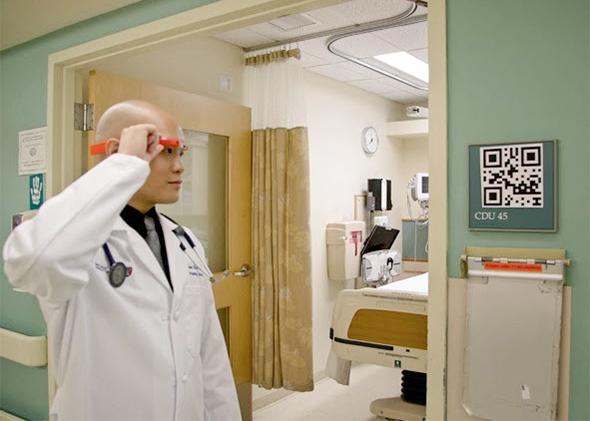If when you’re in the ER, presumably dealing with something kind of important, and a doctor comes up to your bed wearing Google Glass, your first thought might be, “Really? Do we have to do this right now?” It could feel like a bad time to be encountering something new. But Beth Israel Deaconess Medical Center in Boston is helping patients push past any hesitance as they pilot a patient ID and information system that utilizes Glass and QR codes.
And, at least in Boston, it seems like patients are feeling fine about the bright orange Glass. John Halamka, the chief information officer at BIDMC, wrote in a blog post:
Patients have been intrigued by Google Glass, but no one has expressed a concern about them. Boston is home to many techies and a few patients asked detailed questions about the technology. … Staff members have definitely noticed them and responded with a mixture of intrigue and skepticism.
Glass allows the four doctors in the emergency department (ED), who have been piloting the Glass since December, to access the ED Dashboard that the doctors usually access on desktops to brush up on background about the patients they’re about to see. For each patient, they scan a QR code to pull up the information and then have it visually accessible throughout their exam.
What about patient data privacy? Halamka emphasizes that the pilot is specifically conceived to keep all patient data behind the BIDMC firewall, and away from any Google or other third-party servers, as Ars Technica reports. The Glass pilot only uses existing BIDMC informatics systems that are (presumably) secure and comply with HIPAA.
If Glass continues to be used in medical settings, other privacy concerns may start to crop up about Glass’s other capabilities, like general Internet access and the potential for Glass to be recording video without a patient’s consent. But making information accessible and hands-free for medical professionals certainly seems like a logical step.
